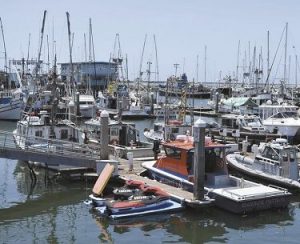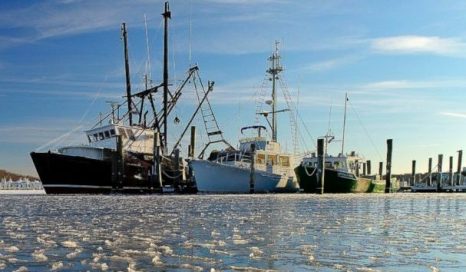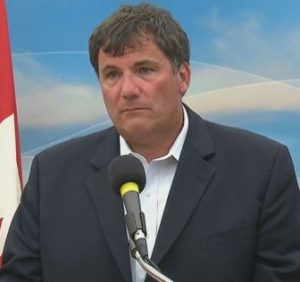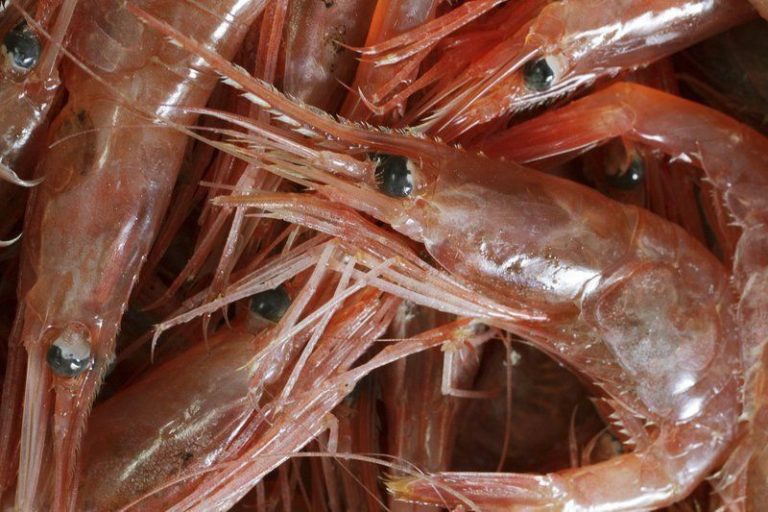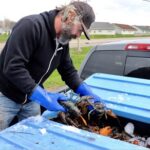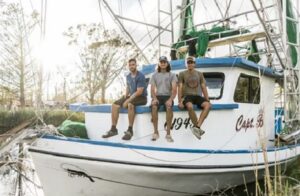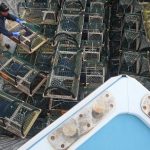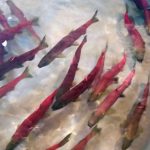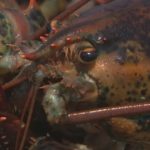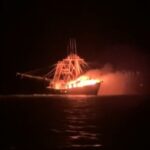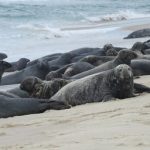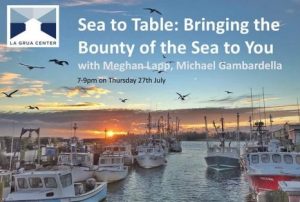Monthly Archives: June 2018
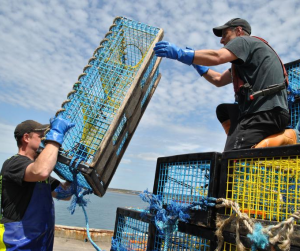
Lobster harvesters unfairly blamed of harm to North Atlantic right whales
Much has been written about the ongoing challenge of protecting the North Atlantic right whale along the eastern seaboard of the U.S. and in the Gulf of St. Lawrence. The impact the 18 reported deaths in 2017 has had on the entire right whale population cannot be understated. The issue in many cases has been a lack of substantiated facts with regard to specific fisheries and the ongoing commitment by key fisheries to protect the right whale. The Canadian lobster fishery is one of those key fisheries that has, until now, remained silent about our role and our ongoing commitment to North Atlantic right whale protection. Our harvesters and processors do what’s needed to ensure a sustainable fishery without fanfare. >click to read<08:28
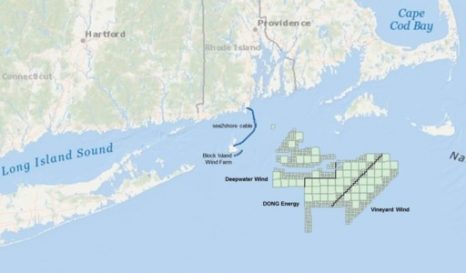
Wind Farms Are Not Only Expensive They Are Terribly Noisy
Northeast States are turning to wind farms hoping for relief from high energy bills, they’re finding out wind energy is not only expensive but very noisy. Brazil, the world’s eighth largest producer of wind power, has erected wind turbines off its Atlantic coast where the wind blows consistently and the noise is constant. Recently, officials in Massachusetts and Rhode Island announced contracts for two large offshore wind farms off Martha’s Vineyard.,,, The wind developers are rushing the projects to benefit from a federal tax credit for offshore wind projects before it expires in 2020. As with other offshore wind projects, fishermen are wary of the detrimental impacts that the wind turbines, the associated subsurface cables and the subsequent noise will have on their livelihood. >click to read<20:35
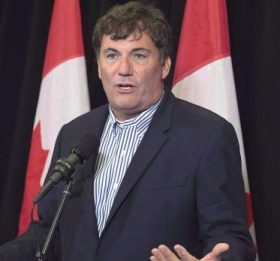
LeBlanc offers fall season to fishermen squeezed by right whale measures
The federal fisheries minister says he has offered lobster harvesters from New Brunswick and Quebec a previously unscheduled fall fishing season, to make up for measures aimed at protecting endangered right whales. Dominic LeBlanc said he told the Maritime Fishermen’s Union that he plans to open a harvesting zone in the last half of September because of the 15-day closure of a 1,400-square-kilometre portion of ocean that begins Sunday. LeBlanc said the offer will go to about 62 fishing vessels in New Brunswick and 60 from the Gaspe Peninsula whose lobster harvest will be largely shut down as the whales pass through. >click to read<18:45
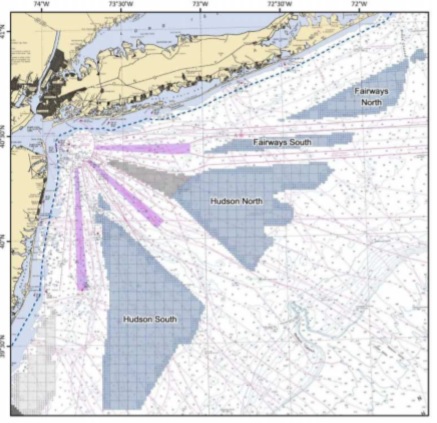
Wind Turbine Development and the future of fishing? Nils E. Stolpe/FishNet USA
Let’s start with commercial fishing perspectives on wind farms in the North Sea: Seventeen fishing vessels docked in the centre of Amsterdam, a city that built its wealth and prosperity on the herring fishery. Between 600 and 700 fishermen from Holland and Belgium arrived in the city for a peaceful but highly visible protest that was followed by dozens of journalists.,,, In spite of the fact that in the U.S. our experience with producing electricity with offshore wind turbines is virtually nonexistent, we are apparently well on the way to committing billions of dollars to the effort – and most of that effort is going to be in the waters off New England and the mid-Atlantic. How much experience do we have with offshore wind turbines in the United States? >click to read<12:23
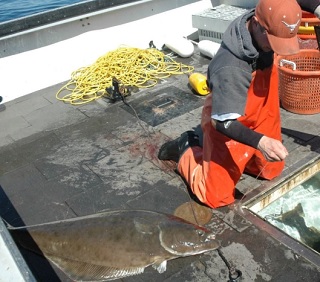
Halibut landings up, so Maine halibut landings to go down
Just as in the physical world, it’s a quirk of the regulatory world of fisheries management that when something goes up, something must go down, and it isn’t always the same thing. Last week, the Department of Marine Resources held a series of public hearings in Ellsworth, Machias and Augusta on a proposed regulation that would shorten the Maine halibut fishing season by 20 days, cut the number of allowable hooks for halibut fishing on each boat and ban possession of halibut by fishermen who have state-issued halibut tags who have been fishing outside the three-mile state waters limit. >click to read<10:55
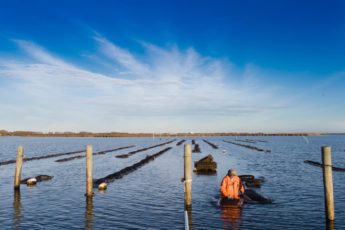
Commentary: Questions abound with industrial oyster farm bill, It’s dirty – plain and simple.
Wonder what all the heartburn is about with the oyster restoration bill sponsored by local legislators Sen. Bill Cook, R-Beaufort, and Rep. Beverly Boswell, R-Dare? It’s dirty – plain and simple. And although the who, what and how parts are now visible, there are a ton of questions about various entities that are yet to be answered. The North Carolina Coastal Federation is taking the heat for the oyster aquaculture bill, H361, that contains a few needed fixes but primarily was written to benefit one company – a foreign company with a murky record in other states where it does business. But the Coastal Federation and the collaboratory that was appointed to map out a plan to grow the state’s oyster industry didn’t write the bill. >click to read<10:14
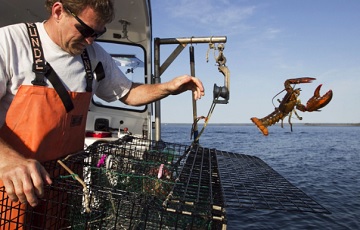
Feds weigh costly new regulation for Maine lobstermen
The National Oceanic and Atmospheric Administration requested comment on the proposal in a notice posted to the Federal Register on Wednesday. Maine is the only state that doesn’t require all lobstermen to report catch-level information after each haul, and the policy change is expected to receive backlash from its powerful fishery lobby. “We’re going to get a lot of probably negative comments on this because it’s going to be a burden for people,” said Peter Burns, a lobster policy analyst with NOAA’s Greater Atlantic Regional Fisheries Office. “The lobster industry is very strong. For the longest time, they wanted to protect their fishing information, their proprietary business information.” >click to read<09:15
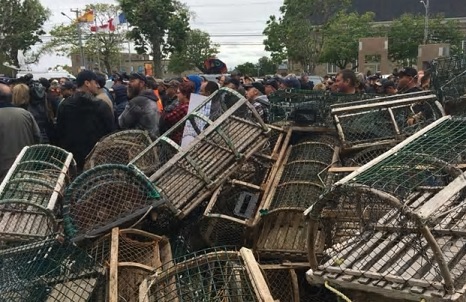
Lobster fishermen create wall of empty traps at protest against closures
Nearly 500 fishermen brought empty lobster traps to Caraquet on Thursday to protest against the closure of fishing areas in the Gulf of St. Lawrence while endangered whales swim there. The protest came after another round of fishing area closures was announced by Ottawa this week because five North American right whales were spotted between Miscou and the Gaspé Peninsula. “We’ve never entangled one in lobster gear in these areas, ever,” said Carl Allen, president of the Maritime Fishermen’s Union, who organized the protest. Allen said the closures not only hurt fishermen and processing plant workers but also local economies on the Acadian Peninsula. >click to read<22:03
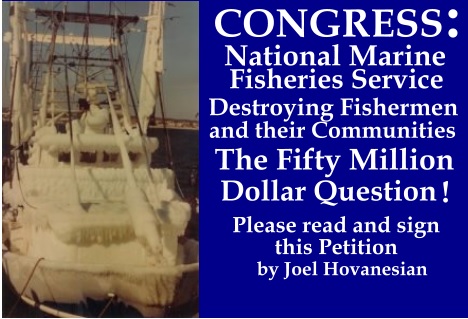
Congress : National Marine Fisheries Service, Destroying Fishermen and their Communities, The fifty million dollar question.
6/14/2018 – Please read, and sign the Petition By Joel Hovanesian, Thank you. Fisheries observers work aboard commercial fishing vessels during fishing trips. They collect information on catch, both kept and discarded, as well as biological data and information on gear and fishing operations over a range of commercial fisheries. These data are used extensively by researchers and fishery managers to better understand the condition of fishery stocks, fishing businesses, and fishing operations. These are NOAA’s words. The reality of the situation is far different. While many fishing businesses have been destroyed by the policies of the National Marine Fisheries Service and many more just hanging on we need to look at the reality of what is truly going on and questions need to be asked. >click to read and sign the petition< 21:00
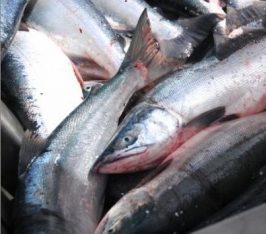
Horrible timing
The Alaska Department of Fish and Game was Wednesday lobbying Alaska residents to buy Chitina dipnet permits to fish the Copper River even as the troubled, 2018 return of sockeye salmon to that big, muddy drainage was fading so badly that Cordova commercial fishermen pleaded to have the dipnet fishery shut down. “As of today sonar counts are well below projected counts and remain below the minimum threshold of 360,000 sockeye salmon for spawning escapements,” the Cordova District Fishermen United said in a letter to state officials. “In light of the weak early run component, restrictive closures on commercial fishing openers, and no noticeable increase in counts at the sonar currently, it is in the best interest of our sockeye runs to close the Copper River personal use and sport fisheries.” >click to read<18:26
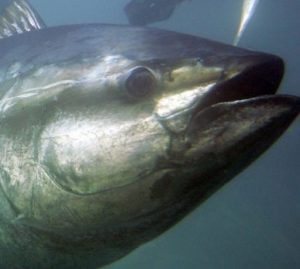
Tuna ruined his life, then saved it
Nobody knows more about the ups and downs of the fish industry than Dennis Gore. Riding high, he was one of the most successful tuna buyers in the world. At the bottom, he was bankrupt, depressed and loathed by commercial fishing captains he couldn’t afford to pay. At one point, his Rainbow Connections company was “doing $9 million in sales a year, mostly selling bluefin to Japan.” On the other end, he was sitting in his living room, “smoking pot and listening to the Grateful Dead.”For years Gore refused to talk about it. “I’ve kept all this inside of me for so long, and it’s been eating at me,” he said while sitting on a picnic table at O’Neal’s Sea Harvest in this sleepy little fishing and boat-building village. >click to read<16:30
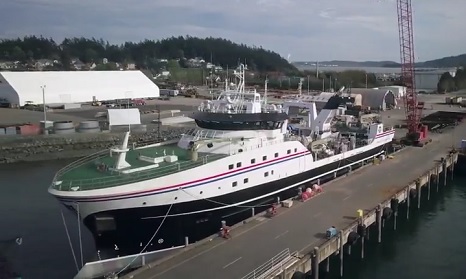
Why this super ship is making enemies in Alaska and on Capitol Hill
A few weeks ago, Helena Park reluctantly repainted her brand new, $75-million, fishing boat to mask its name, “America’s Finest.” It no longer seemed appropriate since the vessel might never fish in American waters. “There’s no ‘finest’ in America anymore. It will be someone else’s ‘finest.’” says Park, who’s the CEO of Fishermen’s Finest, a Washington-based fishing company. The ship’s troubles started when Park’s company made powerful enemies in Alaska and on Capitol Hill. Remote coastal communities that rely on fish processing plants for employment are worried ultra-modern fishing ships like America’s Finest, with its own on-board factory that can process over 500,000 pounds of fish a day, will make them obsolete. Along with rival fishing companies and Alaska’s representatives in the Senate, they’ve devised a strategy to stop America’s Finest from ever leaving the shipyard — using an obscure, century-old law called the Jones Act. Video, >click to read<13:50

La Scie fisherman Terry Ryan donates $10,000 to FISH-NL’s Go Fund Me campaign; challenges other harvesters to step up to the plate
Well-known fisherman Terry Ryan of La Scie is contributing $10,000 to FISH-NL’s Go Fund Me Campaign to raise enough money to force a vote for inshore harvesters to decide their union fate. “It’s time we had a vote,” said Ryan. “I’m giving this $10,000 out of my own pocket to motivate other people to contribute as well. Fishermen and fisherwomen deserve the right to choose, and the fishery has never been in more need of a debate than right now over where the industry is headed.” >click to read<12:39
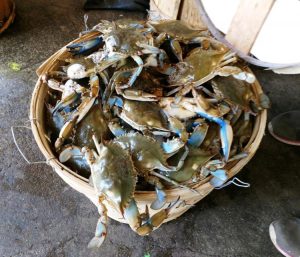
Shrimp pass hard-shell crabs as North Carolina’s most lucrative seafood
Hard shell blue crabs had been the state’s leading seafood in pounds caught and in dockside value for decades. They still lead in pounds caught, but shrimp have taken over for the first time as the most lucrative seafood in North Carolina. Last year’s shrimp value came in at $29.6 million, besting crabs by nearly $12 million. In 2016, the shrimp sold for $28.2 million, again beating crabs. The 2017 shrimp catch reached 13.9 million pounds and 13.2 million pounds the year before that. Both years set new records. Hard crabs are being overfished, said Jason Rock, a state marine fisheries biologist.,,, Commercial fishermen disagree with the state’s alarm. >click to read< 12:03
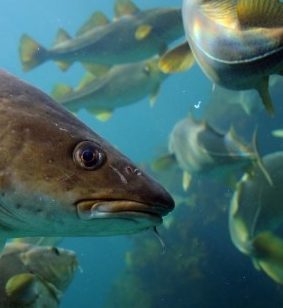
Hope fading for recovery of northern cod off Newfoundland: ‘This stock isn’t growing’
Hopes have been dashed for a recovery of the once mighty northern cod stock off Newfoundland, a leading conservation group says. Three years after scientists confirmed there were signs of a comeback and catch limits were increased, the federal government decided this week to reduce the limit. Ottawa cited a spring stock assessment that found the cod population had declined 30 per cent after seven years of rebuilding. >click to read<09:55
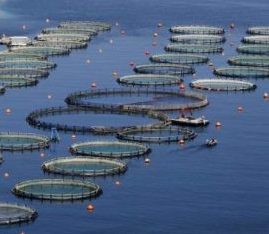
Hundred organisations opposes industrial ocean fish farming
More than a hundred organisations have formally announced their united opposition to industrial ocean fish farming in U.S. waters. According to Friends of the Earth, the move comes as some members of Congress are attempting to force through legislation to develop offshore fish farming nationwide. In a letter to members of Congress, the broad coalition representing a wide range of interests, including commercial and recreational fishing, indigenous populations, consumer advocacy, food, farming and conservation, called on legislators to protect oceans from development of marine finfish aquaculture off U.S. shores. >click to read<08:59
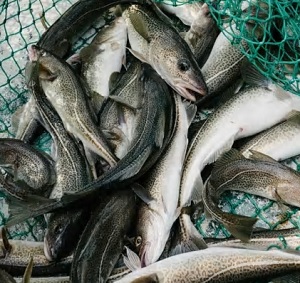
Disappointed by cut to cod quota, FFAW president says stocks can handle larger harvest
The president of Newfoundland and Labrador’s largest fishermen’s union says the province’s cod stocks can handle a greater harvest and didn’t need to see this year’s commercial quota cut. Keith Sullivan of the Fish, Food & Allied Workers’ Union told CBC Radio’s The Broadcast that the 25 per cent cut to this year’s quota will hurt Newfoundland and Labrador communities that are heavily reliant on the fishery. “It doesn’t really take into consideration the livelihoods what people depend on the fishery, whether you’re a fish harvester or you work in a plant or the entire economy of coastal communities,” said Sullivan. >click to read<20:13
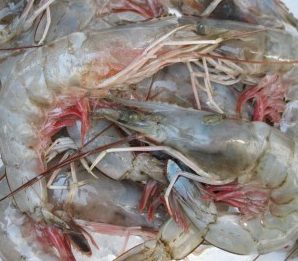
Fishing for White, Brown, and Pink Shrimp is Now Open Off South Carolina in Federal Waters
Federal waters adjacent to South Carolina state waters are open to fishing for white, brown, and pink shrimp as of 4:15 p.m., local time, June 13, 2018. South Carolina state waters remain closed until the state determines an appropriate reopening date. South Carolina closed its state waters to all shrimping on January 10, 2018, due to a prolonged period of water temperatures at or below 9°C in the region. South Carolina requested NOAA Fisheries close federal waters off South Carolina to shrimping. The federal closure was effective January 17, 2018. >click to read<18:17
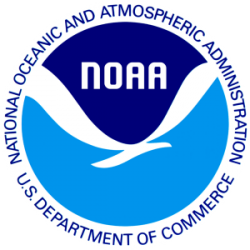
NOAA Fisheries Seeks Comments on Future Reporting Requirements for the American Lobster Fishery
The Atlantic States Marine Fisheries Commission recently approved Addendum XXVI to Amendment 3 of the Interstate Fisheries Management Plan for American Lobster to improve the scope and type of data collected in the lobster fishery in order to improve stock assessments, assess potential impacts of wind farms, and better assess interactions with marine mammals. The addendum includes recommendations to: Require all federal lobster permit holders to report on catches for each fishing trip. Have NOAA Fisheries collect data on where, when, and how long fishermen are fishing. Expand NOAA Fisheries’ offshore biological sampling program. >click to read<17:07

Athearn Marine Agency Boat of the Week: 45′ Stanley Scalloper with permits, 6 Cylinder Iveco 8210, 8 KW Lister
Specifications, information and 28 photos >click here< To see all the boats in this series, >Click here<14:12
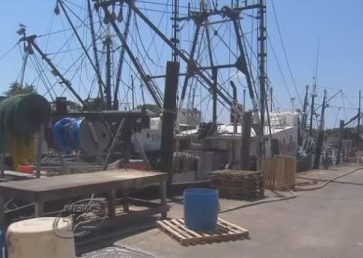
New Jersey Lawmakers Calling on Feds to Lift Strict Limits on Fluke Fishing for This Season
The State Assembly is asking the federal government to suspend a 40 percent quota reduction that enters its second year until a new fluke stock assessment is completed and new rules can be established based on those findings. “NOAA recommendations for the 2017 and 2018 seasons were based on flawed data collected from inconsistent sampling and methodology,” said Assemblyman Edward H. Thomson (R-Monmouth/Ocean), who sponsored the resolution to freeze limits to 2015 levels.,, “New Jersey desperately needs Washington to stop relying on flawed numbers and bad science and complete newer, more precise stock assessments so we can accurately assess the health of our fluke stocks while protecting our fishermen’s livelihoods,” >click to read<12:55
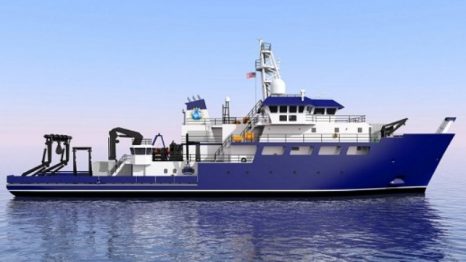
Oregon State University Orders Second U.S. Research Ship
Oregon State University has received $88 million from the National Science Foundation to lead construction of a second Regional Class research vessel to help bolster the nation’s aging academic research fleet. The National Science Foundation selected Oregon State in 2013 to lead the initial design phase for as many as three new vessels, and the National Science Board authorized as much as $365 million for the project. Last summer, the National Science Foundation awarded Oregon State University a grant of $121.88 million to launch the construction of the first vessel, which Gulf Island Shipyards in Louisiana is building and the university will operate. >click to read<10:40
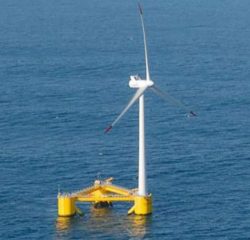
Regulators apply brakes to offshore wind power project led by UMaine
Longstanding efforts to establish an offshore wind energy industry in Maine suffered a setback Tuesday when state utility regulators voted to reopen a previously negotiated power contract to test a patented technology for deep-water floating wind farms. Since January, supporters of the Maine Aqua Ventus project had expressed concern that action by the Public Utilities Commission to alter a power-rate contract set in 2014 could doom the University of Maine-led venture just as it’s reaching the critical stages for financing and permits. >click to read<10:10

NOAA law enforcement researches sexual harassment, assault among fishery observers
Women are harassed and fear for their safety much more than men when they work as fishery observers. That’s according to a report that NOAA’s office of law enforcement officials presented about sexual harassment of observers to a meeting of the North Pacific Fishery Management Council in Kodiak this past week. The report shared preliminary data from an ongoing survey and although the sample size is small, the survey reveals stark differences between the experiences of female and male observers. >click to read<09:07

Latest fishing area closures raise fears about fights over shrinking territory
About 300 fishermen from across the Acadian Peninsula held an emergency meeting Tuesday to discuss the latest fishing area closure and their options. Exasperated by the federal government’s closures of fishing grounds, fishermen and plant workers from across New Brunswick’s Acadian Peninsula held an emergency meeting Tuesday on Lameque Island to discuss their options. Afterwards, some said they were worried the latest closure would lead to fights over what little territory they have left. The meeting came after another round of fishing area closures was announced Monday, after five North American right whales were seen between Miscou and the Gaspe Peninsula. >click to read<21:41
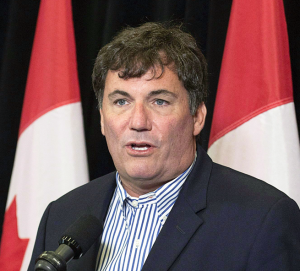
Ottawa considers help for Gulf of St. Lawrence fisheries after right whale protection measures
“At the moment we are not talking about compensating with actual financial compensation the fishermen,” LeBlanc said in a telephone interview. New Brunswick Fisheries Minister Rick Doucet called Monday for measures to address lost revenue, and LeBlanc said that is “entirely consistent” with his department’s approach to the developing situation in the Gulf of St. Lawrence. LeBlanc said it includes looking at ways to help processing plant workers qualify for Employment Insurance, and a possible fall opening of the lobster fishery to make up for lost days. >click to read<Meanwhile, Lobster and crab fishermen in Quebec ‘out of options’ as more zones closed off – “I don’t know how we’re going to get out of this one,” said O’Neil Cloutier, the general manager of the professional fishermen’s association of southern Gaspé. >click to read<19:39
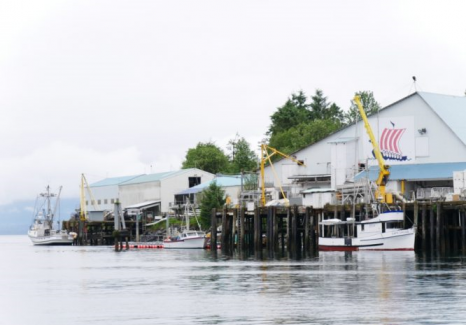
Optimism scarce as commercial fisheries start up in Southeast
Activity is picking up in the harbors in Petersburg this week as fishing boats and tenders prepare for the start of several commercial fishing seasons, but optimism is a little scarce on the docks. Fishermen this summer are feeling the impacts of reduced catches, low forecasts and increasing competition from marine mammals. In South Harbor, Charlie Christensen is readying the Erika Ann for some tendering work in the early summer. Then he’ll switch over to seining once pink salmon start coming in. He has a long list of bad news for his fishing season, stretching back to management decisions by the Alaska Department of Fish and Game for golden or brown king crab. He also points to whale predation on black cod,,, >click to read< 17:22






